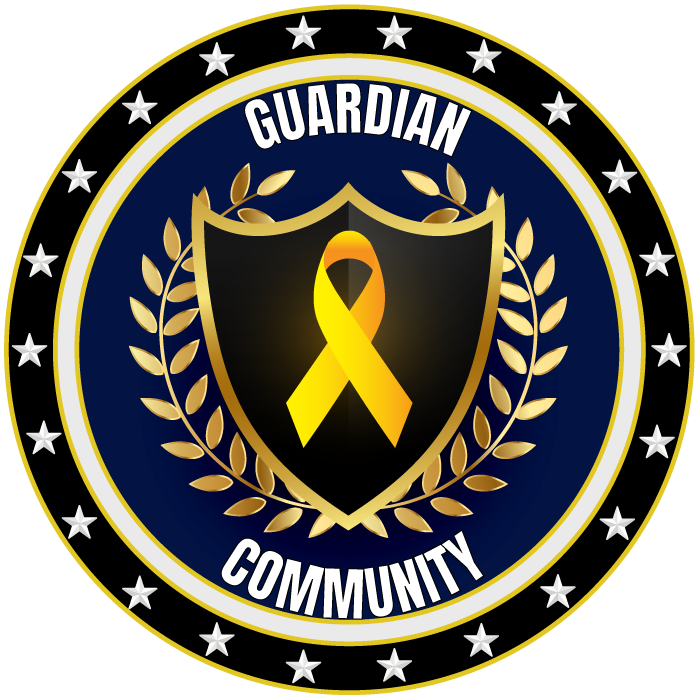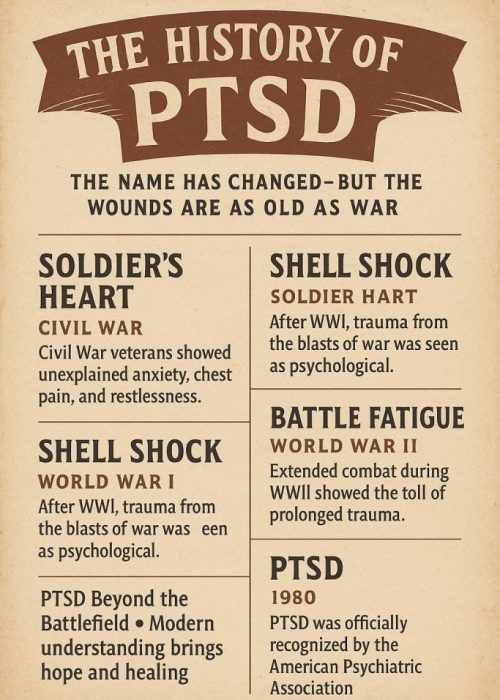History of PTSD
 The Name Has Changed—But the Wounds Are as Old as War
The Name Has Changed—But the Wounds Are as Old as War

It didn’t start with Afghanistan.
It didn’t even start with Vietnam.
Long before the clinical term existed, soldiers returned home carrying invisible wounds. They came back with a far-off stare, startled by fireworks, restless at night, or unable to speak about what they’d seen. People gave it many names, but the pain was always the same.
Early Terms for PTSD
-
Soldier’s Heart — During the Civil War, veterans showed unexplained anxiety, chest pain, and restlessness.
-
Shell Shock — World War I soldiers returned unable to walk, talk, or hold steady. At first, it was blamed on blasts, but later recognized as psychological trauma.
-
Battle Fatigue — World War II highlighted the toll of prolonged combat. Soldiers were rotated off the front lines for rest, but those unable to recover were unfairly labeled as weak.
Vietnam Veterans and a New Era
After Vietnam, veterans came home to stigma, not parades. Many turned to drugs, alcohol, or isolation. Yet, they began sharing their stories—and the world slowly listened.
In 1980, the American Psychiatric Association officially recognized Post-Traumatic Stress Disorder (PTSD) in the DSM-III. For the first time, these invisible wounds had a name and a place in medical understanding.
PTSD Beyond the Battlefield
Today, we know the history of PTSD isn’t only tied to war. Trauma can affect:
-
First responders exposed to tragedy daily
-
Survivors of abuse or assault
-
Victims of car crashes or natural disasters
-
Children raised in chaotic homes
-
Anyone overwhelmed by experiences that felt terrifying or inescapable
What was once thought of as only a soldier’s issue is now understood as a human response to overwhelming pain.
Healing Then and Now
Modern treatments like EMDR, cognitive behavioral therapy, group support, and somatic practices are helping people recover. Yet many still suffer silently.
Even ancient writings echo the symptoms of PTSD:
“I am worn out from my groaning. All night long I flood my bed with weeping… My eyes grow weak with sorrow.” – Psalm 6:6–7
Whether from Scripture or psychiatry, the message remains: pain must be voiced.
The Next Chapter Starts With You
At Guardian Community, we honor both the history of PTSD and the hope of recovery. Healing isn’t about “getting over it”—it’s about walking through it, together.
Whether your wounds came in combat, on the job as a first responder, or through personal trauma—you’re not alone.
Join our trauma support program today. Because PTSD has a long history. But so does hope.

